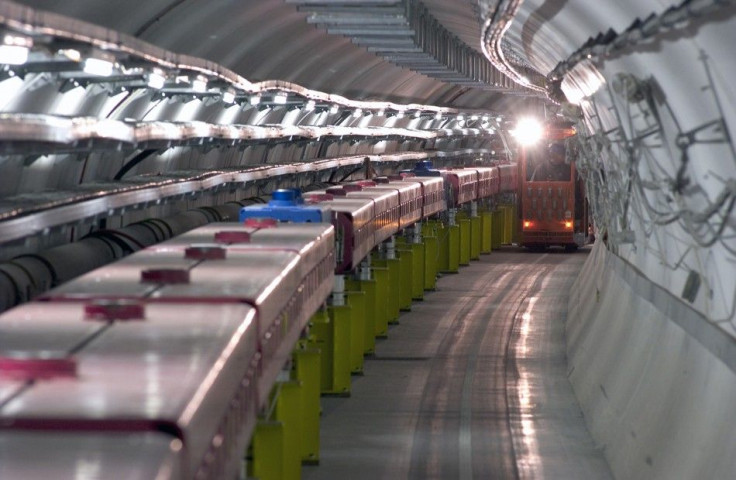Faster-than-Light Neutrino Errors Call Experiment into Question

Faster-than-light neutrinos, the controversial claim that subatomic particles could travel faster than the speed of light, was put into doubt Wednesday after researchers announced their experiment contained two errors.
An international team of researchers originally clocked the subatomic neutrinos at a speed that would defy the longstanding principal that nothing could travel faster than the speed of light.
The two errors involved miscommunication between machines and unsynchronized clocks used in the experiment. How the errors affected the experiment remains unknown, but the researchers said they anticipated the errors might cancel each other out.
Researchers said they planned to run further neutrino tests in May in order to verify the results.
The Oscillation Project with Emulsion-Tracking Apparatus (OPERA) experiment spans across Italy and Switzerland and started in 2008 as a way to discover basic principles of the smallest of subatomic particles.
Researchers sent high-energy neutrinos flying down a 453-mile (730-kilometer) tube that then slammed into a lead detector backed by 1,300 tons of bricks.
After three years of data collection, researchers announced in September the unexpected: neutrinos appeared to arrive 60 nanoseconds faster than light would take to travel that same distance.
Many scientists showed skepticism from the get-go.
I don't think I met anyone who said I bet it's going to be true, Edward Blucher, chairman of the physics department at the University of Chicago, told Reuters. I think the people on the experiment worked as carefully as they could and I think they ran out of ideas of what could be wrong and they decided to present it. Maybe they should have waited a few more months.
Sergio Bertolucci, research director at CERN, the organization that operates the Large Hadron Collider, said that he, too, thought the researchers were wrong.
I have difficulty to believe it, because nothing in Italy arrives ahead of time, Bertolucci joked at the American Association for the Advancement of Science conference in Vancouver last week.
The experiment pioneered the use of GPS systems to synchronize atomic clocks at either end of the experiment and researchers say this was the source of the errors.
First, the clocks may not have been synchronized properly. Second, a loose cable may have led to a faulty connection between the GPS signal and the clocks.
The two errors would cause opposite effects, according to a statement released by the researchers. Improperly synchronizing the clocks would have led to an overestimation in neutrino travel time while the loose cable would have led to an underestimation.
If the results show that that the neutrino does travel faster than the speed of light it would violate Einstein's theory of special relativity, which has been one of the core foundations of modern physics for over 100 years.
OPERA isn't the first experiment to detect neutrinos moving faster than the speed of light. The Main Injector Neutrino Oscillation Search (MINOS) experiment in Minnesota witnessed neutrinos arriving more quickly than they should from the particle-physics faculty Fermilab in Illinois, according to Nature.
MINOS downplayed the results because they were uncertain that they measured correctly. MINOS researchers, too, will run the test again the spring with results expected towards the end of 2012.
© Copyright IBTimes 2024. All rights reserved.





















